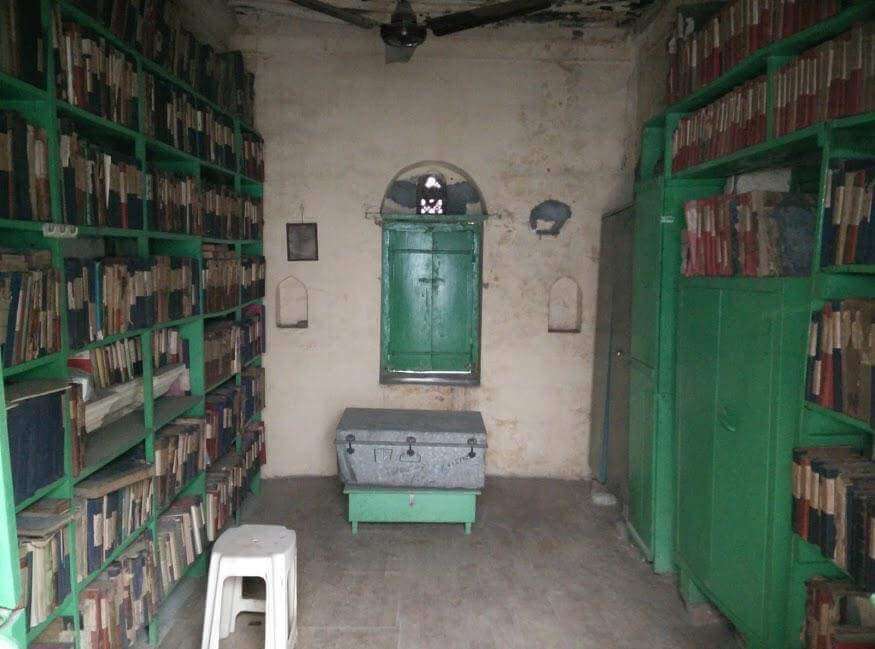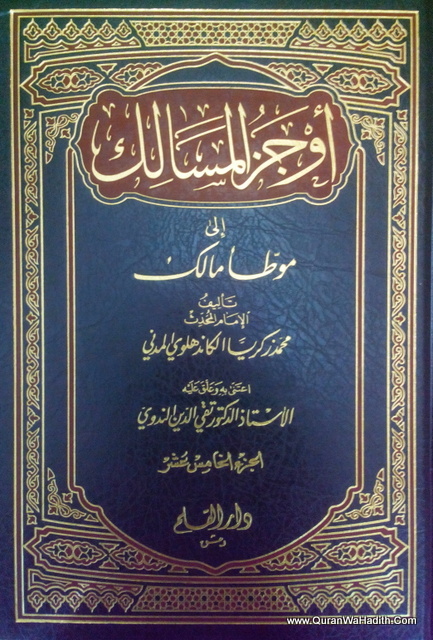If you read the biographies and autobiographies of the venerable scholars of Islām, you will without a doubt, come to the conclusion that every single one of them were exemplary giants in the fields of Islamic knowledge. Be it Ulūm Zāhiriyyah or Bātiniyyah. They excelled and further excelled, setting an extremely high threshold of standards for scholars to come after. For example, there was the great Imām Ghazālī who was known as Hujjah al-Islām (The Proof of Islām) and there was the meritorious Shaykh Maulānā Ashraf Ali Thānwi Sahib who was known as Hakīm Al-Ummah (the physician of the entire ummah!) (Physician referring to the spiritual rectification of the people) his works alone number in more than 1000. Nevertheless, like this, the list can go on and on.
The luminary I would like to write about is such a man who exceeded his contemporaries. His works have been accepted worldwide by both laymen and scholars alike. To such an extent that regarding his 18-volume commentary on the Muwatta of Imām Mālik, ‘Awjaz Al-Masālik’ a Middle Eastern scholar has been quoted as saying “قَدْ حَنَّفَ الْمُوَطَّا” meaning he has written such an outstanding commentary on Imām Mālik’s book that it is as though Imām Mālik himself was a Hanafī! Only scholars can comprehend how much weight such a bold statement holds! The luminary I am talking about is none other than the great Shaykh Al-Hadīth Maulānā Muhammad Zakariyyah ibn Maulānā Yahyā Muhājir Madani Sāheb.
Birth
The house of Maulānā Yahyā Saheb was blessed with the birth of Hadhrat Shaykh on the 10th of Ramadhān 1315 AH (which corresponds with Wednesday 2nd February 1898 [approx.]). Hadhrat Shaykh was blessed with the company of great scholars from a very young age. He grew up in the lap of Hadhrat Maulānā Rasheed Ahmed Gangohi Saheb himself! No doubt his blessed spiritual influence had a huge impact on Hadhrat Shaykh’s spiritual upbringing and wellbeing. This along with memorising the Noble Qur’ān under the supervision of his father and learning the elementary Persian books in the company of Amīr al-Tableegh Hadhrat Maulānā Ilyās Sāheb who was his paternal uncle. One can say without a doubt that his entire family were extremely pious friends of Allāh. To such lengths that the women of his household would complete 40 Juz’ of the Holy Qur’ān daily in the blessed month of Ramadhān alongside carrying out the household chores. Seeing such piety on a daily basis created a spark of enthusiasm within him and day by day that fire got bigger and bigger and to this very day the whole world takes heat and benefits from that fire.
It would not be an overstatement to say that if every student of knowledge and scholar was to model their life the way Hadhrat Shaykh had outlined in his autobiography Aap Beeti- the institutes of Islamic knowledge will produce such scholars once again InshāAllāh.
Youth and Tarbiyyah
From a young age, his father brought up Hadhrat Shaykh on strict Islamic values. He embedded in him the qualities of the saints; sufficing with little, adopting moderation in clothing and food, sacrificing his time for the service of Deen and studying and other saintly qualities. His father raised him on strict principles. Hadhrat Shaykh himself narrates in his ‘Aap Beeti’ that once during his student days in an attempt to emulate the pious scholars, he began to pray the supererogatory (Nawāfil) ‘Awwābīn’ prayers after Maghrib Salāh. His father, after seeing this began to beat him! And exclaimed “why don’t you learn your Sabaq (Motāl’ah)?!” at the time Hadhrat Shaykh became upset but then came to realise that Shaytān the accursed can mislead a person by engaging him in supererogatory acts of worship thereby distracting him from more important priorities. Another lesson that can be learnt from this is that the elders (especially the scholars) know what is best for us and will wish only good for us, therefore we should accept their orders and obey them with a smile on our faces and a hammer on our rebellious egos, for they’ve been through everything we may be going through and they can differentiate what is correct from that which is wrong.
Works and Piety
It was due to years and years of this kind of upbringing that produced a man, the likes of which the world has never witnessed before. Another one of his extraordinary works is the ‘Al-Abwāb Wat-Tarājim’. This is a six-volume commentary on only the chapter headings of Sahīh al-Bukhārī! I cannot exaggerate the level of knowledge Hadhrat Shaykh possessed because anything I say will be befitting of his title.
Hadhrat Shaykh spent a lot of time in the company of his Shaykh, Shaykh al-Hadīth Hadhrat Maulānā Khalīl Ahmed Sahāranpūrī. He assisted him in writing the grand 20-volume commentary on the Sunan Abī Dāwūd, Badhl al-Majhud. Such an ocean of knowledge they both possessed!
Below are a few more works which Hadhrat Shaykh authored;
- Fadhail A’mal (Multiple languages)
- Al Abwab wa Al-Tarajim (Arabic)
- Fadhail Sadaqat (Multiple languages)
- Fadhail Durood (Multiple languages)
- Fadhail Tijarat (Multiple languages)
- Aap Beeti (Multiple languages)
- The Differences of Imams (Multiple languages)
- The Ramadhan of the Elders (Multiple languages)
- Al E’tidal fi Maratib al-Rijal (Multiple languages)
- Badhl al-Majhud (Co-authored)
Possessing immense amounts of knowledge isn’t the only factor that made Hadhrat Shaykh an extraordinary scholar. His piety, foresight, and divine bestowal of knowledge were also untouchable. I do not know of any scholar who was more of a staunch lover of the leader of the two worlds Prophet Muhammad ﷺ. He has an excellent work written called ‘The Virtues of Durūd’. Other than this, many books and scholars can testify to the love Shaykh had for the beloved Prophet ﷺ.

Passing and Jannatul Baqi
As a result of this love, Allah took his soul in the beloved city of our beloved prophet Muhammad ﷺ, Madīnah Munawwarah on the 1st of Sha’ban 1402 AH on a Monday after Asr Salāh. The Janāzah Salāh took place in the blessed Masjid Nabawī after the Ishā Salāh. He currently rests in the soil of Madīnah Munawwarah in the Jannah al-Baqī’ cemetery in close proximity to the Ahl al-Bayt.
I understand this was more of a ‘fan piece’ in respect of the Shaykh and not much of a detailed biography, however, his autobiography is available in English and Urdu for those who want to read up on his life in greater detail. I would highly recommend that everybody read it.
May Allah elevate their ranks and pardon us our weaknesses.
Ml Hanzala Khan
Sha’bān 1444 h. | March 2023


Leave a Reply